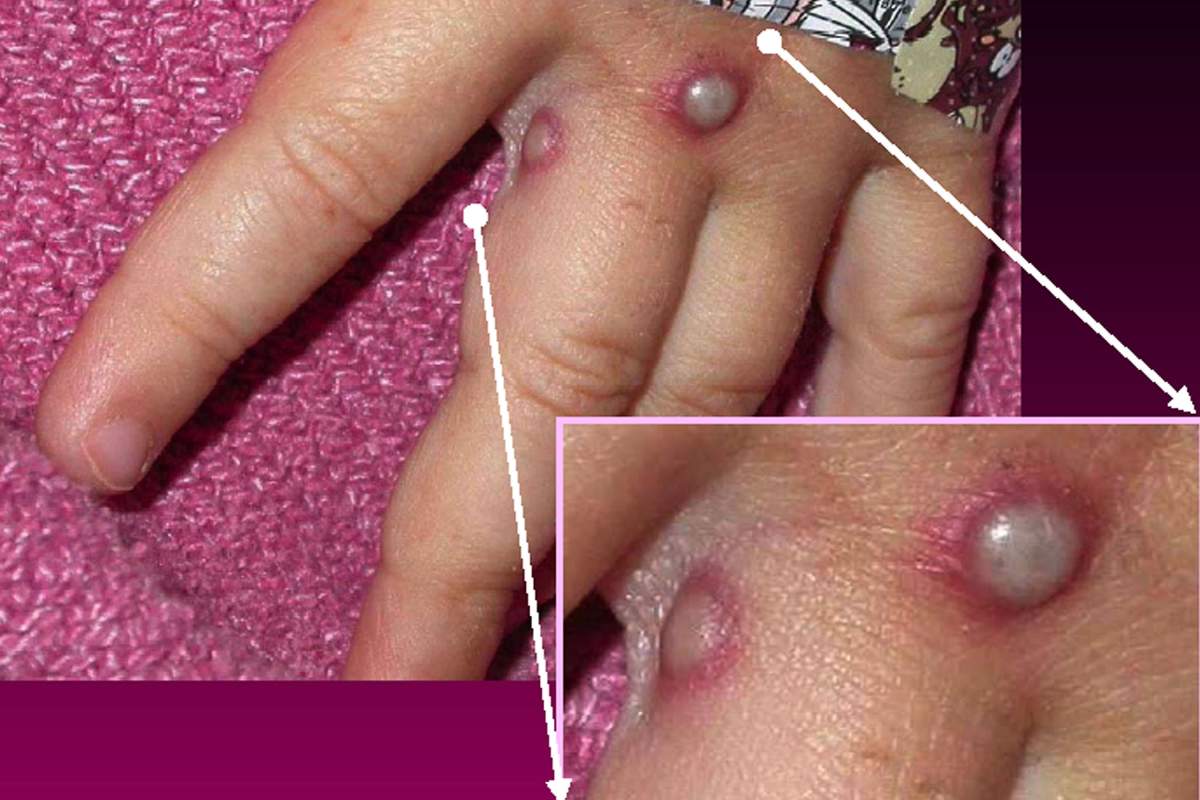Warning: This article contains graphics that may be disturbing to some readers.

Public health officials in the U.K. have confirmed two unrelated cases of monkeypox, a rare viral infection.
A statement from Public Health England (PHE) released earlier this week added the second patient was diagnosed last week in Cornwall.
“This second patient had travelled to Nigeria where they are believed to have acquired the infection,” the statement said. The second case first presented at Blackpool Victoria Hospital and following a positive test result was transferred to Royal Liverpool University Hospital, an expert respiratory infectious disease centre, where they are receiving appropriate care.”
READ MORE: Second carcinogen found in recalled blood pressure drug, Health Canada
Dr. Nick Phin, deputy director of the national infection service at PHE added in September 2017, Nigera had gone through a “large sustained outbreak” of the rare viral infection.
“Since then sporadic cases have continued to be reported. It is likely that monkeypox continues to circulate in Nigeria and could, therefore, affect travellers who are returning from this part of the world.”

And the fact that both of these cases are unrelated is also quite unusual, Phin said.

Get weekly health news
“We are working hard to contact individuals, including healthcare workers, that might have come into contact with the individual to provide information and health advice.”
What is monkeypox?
Monkeypox is caused by the monkeypox virus, which is in the same family as smallpox, the Virginia Department of Health noted. It was first discovered in lab monkeys in 1958, but these days it is found in different types of African rodents.
The department explained the first U.S. reported case was in 2003, and most cases have been contained in the Africa. There have been no reported cases in Canada.
READ MORE: Some doctors prescribe antibiotics much more often
than others. Ontario is trying to find out why
Symptoms, Health Canada noted, include fever, headache, backache, and fatigue for a period of two to three days. This is typically followed by rashes and blisters that eventually scab and fall off.
In terms of treatment, patients are recommended to relieve their mild symptoms, but as of now, there is no specific treatment for monkeypox on its own.
READ MORE: Woman given antibiotics after a car accident, develops ‘black hairy tongue’
How does it spread?
PHE added the infection doesn’t spread easily between people, and it doesn’t last any longer than a few weeks. And although it is rare, it is even rarer for it to be severe.
“The infection can be spread when someone is in close contact with an infected person; however there is a very low risk of transmission to the general population,” the statement read.
Not only are they reminding the public the overall risk of monkeypox is low, but also the importance for people to monitor their symptoms, if they have any. “We are using strict isolation procedures in hospital to protect our staff and patients.”









Comments
Want to discuss? Please read our Commenting Policy first.